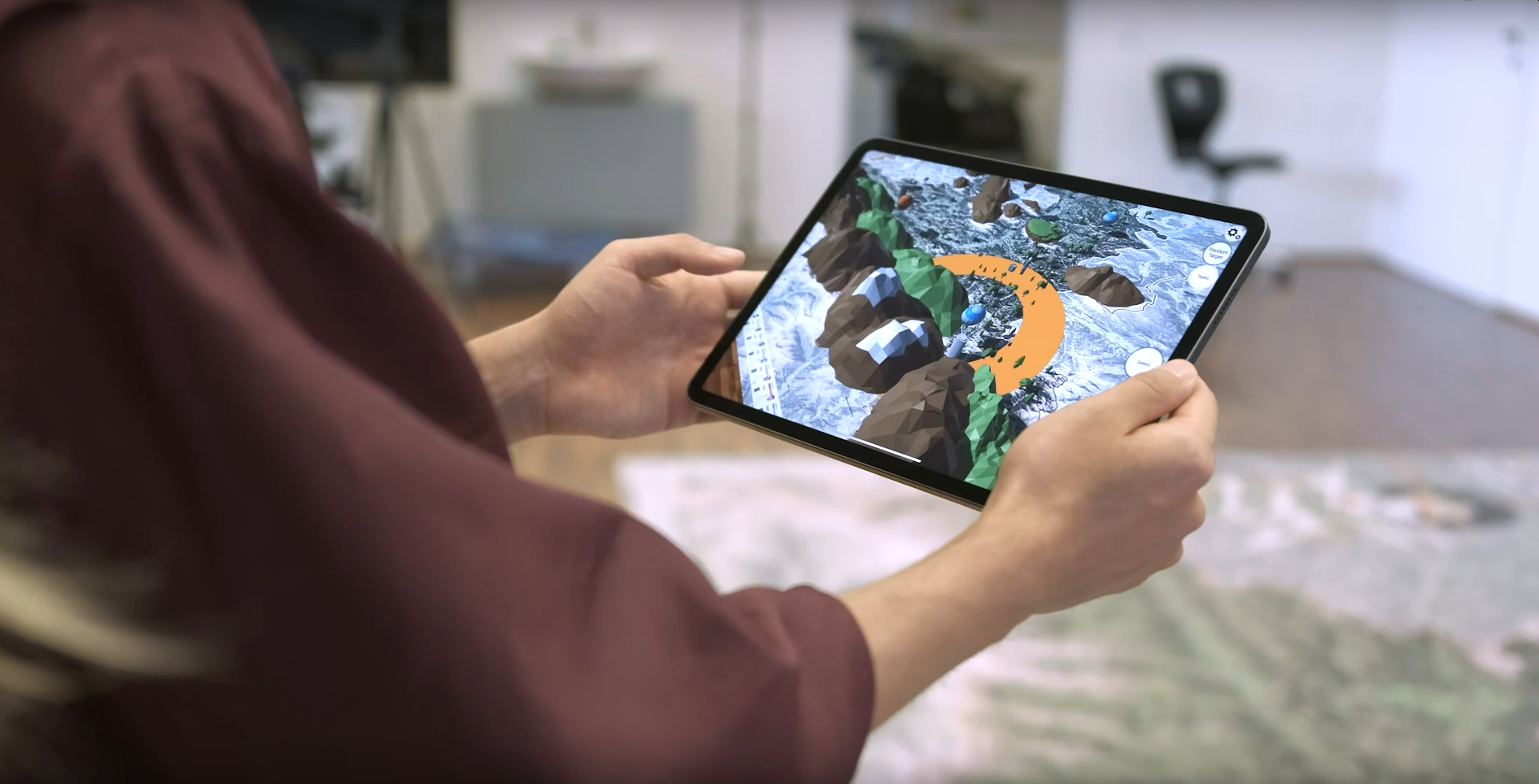
EdTech: Learning with Augmented Reality
Wednesday, 1 April 2020
A 16 m2 satellite image of the province of Salzburg teaches children in Salzburg's primary schools about various topics in a particularly vivid way. The learning map designed by the start-up "Salzburg begreifen" is now being expanded to include a digital component. A research team from the Salzburg University of Applied Sciences, the University of Salzburg and the Salzburg University of Teacher Education is working on the implementation.
The goal of the research initiative EdTechAll (EdTech Salzburg - Augmented Learning Lab) is the preparation of learning content by means of an interactive augmented reality (AR) application, which, in interaction with the map, conveys knowledge interactively and playfully.
Augmented Reality enhances the learning experience
A first application is already well developed. With a farm simulation, children are to be taught the essential processes of agriculture, livestock farming and milk production. With the app, pupils learn about the types of farms typical for Salzburg and can explore the connections and history of agriculture in Salzburg in learning games. AR visualisations help them to understand complex facts, such as the chemical processes involved in the production of various dairy products. Mathematics also comes into play: How many litres fit into a lorry that picks up milk from the farm? The topic of electricity generation in Salzburg, for example, is planned as another learning area for the app.
"We deal with large subject areas from all perspectives and link learning content from several school subjects. AR offers a window into the digital world without losing touch with the haptic nature of the map," explains Markus Tatzgern from the MultiMediaTechnology degree programme, who is leading the project at the FH Salzburg.
Use in schools
In spring 2022, the application will be tested by primary school children under the supervision of the researchers. A study will examine whether the use of the augmented reality application can increase motivation and learning success. The resulting findings will flow into a guideline for the future development of digital learning content.
"With this project, we want to reach teachers who are not yet familiar with digital learning applications and augmented reality. Results from the research project will flow into the training at the University of Teacher Education and into the continuing education programme for teachers," explains Christina Egger, head of the project at the PH Salzburg.
The aim of the project partners is to generate long-term added value. Thus, even after the end of the research project, further learning content is to be added. "We invite companies to develop the concept further and use it commercially. There are enough fields of application in the classroom and possible learning content," says Timo Fleischer, project manager at the University of Salzburg.
The project is initially set up for three years and is financed within the framework of the Science and Innovation Strategy Salzburg 2025 (WISS2025) of the province of Salzburg and supported by Innovation Salzburg GmbH and EdTech Austria.